 What should you NOT feed your composting worms? At Uncle Jim’s Worm Farm, we supply our customers with the finest composting worms. We recommend our quality Red Worms or European Night Crawlers for vermicomposting. Vermicomposting is a great way to get rid of organic waste. It’s good for the environment and produces valuable compost for plants. We want to make sure that not only are our customers happy, but also our worms. Healthy worms make for the most effective composting.
What should you NOT feed your composting worms? At Uncle Jim’s Worm Farm, we supply our customers with the finest composting worms. We recommend our quality Red Worms or European Night Crawlers for vermicomposting. Vermicomposting is a great way to get rid of organic waste. It’s good for the environment and produces valuable compost for plants. We want to make sure that not only are our customers happy, but also our worms. Healthy worms make for the most effective composting.
In their natural environment, worms have the freedom to move to food sources. Yet, your worms live in enclosed bins in a small space. Whatever you feed them becomes part of their world. They can’t easily escape. They are prone to getting ill if you add foods and items to their diets that they shouldn’t eat.
When you add those foods to the worm bin, your worms suffer. For example, rancid fats and oils produce horrible odors. Oils attract unwanted pests. Always check for ingredients to make sure you don’t add these items to the bin. And throw out in trash receptacles food doused in oil, greasy sauces, and butter.
We need to make sure that you know what is bad for your worms. Think of them as your own pets. Knowing they can’t eat certain foods, would you intentionally feed them these items?
Here is an overall review of foods you should NOT feed your worms:
Processed Foods
Many foods today are processed. That means they are packaged with multiple ingredients that you cannot pronounce. Those additional ingredients aren’t good for your worms. The rule of thumb we like to use is that anything added to make something taste amazing or last forever isn’t good for the worms. Excessive salt, hydrogenated oils, fats, and chemical preservatives are bad for the worms. All these will hurt your composting worms’ digestive process. Limit processed foods in your worm bin. Instead, rely more on fresh fruit and vegetable scraps.
No Oils and Fats
Again, our rule of thumb pertains to oils and fats. Unlike worms, we need oils and fats which we get from vegetable oils, butter and margarine. Meat-eaters get oils and fats in animal products. Other animal products such as meat and bones should NEVER be placed in the worm bin. NEVER add milk, cheese, or yogurt in all their varieties.
Avoid Acids
Acidic foods are unhealthy for people who suffer from gastric problems. Your worms, as well, suffer from acidic foods. They rely on a neutral pH balance of 7 to thrive. Avoid adding to the worm bin acidic foods like citrus, pineapples, tomatoes, and onions. This includes their skins and peels. Limit those fruits and vegetables to a small amount to not alter the pH balance.
And a Few Notes of Caution
Keep spicy foods, especially hot peppers, away from your worms!
Bleached white office and coated paper, colored inks, and envelopes with plastic windows are unhealthy for worms. From time to time, adding shredded corrugated cardboard and black ink newspaper is acceptable. (They also make great bedding for a new worm bin.)
Grass clippings from untreated lawns (without pesticides or herbicides) are OK in small amounts. Too much grass will overheat the worm bins.
Lastly, do not feed your worms non-foods. Avoid pits, bleached or colored paper napkins, and household trash. Treat your worms with care. Think twice and, if in doubt, toss it out in the nearest garbage receptacle.
A healthy worm is a happy worm. And a happy worm is a good composting worm. Treat your composting worms even better than you treat yourself. In return, they will produce free organic fertilizer for your plants.
For more tips, check out our blog. Uncle Jim’s Worm Farm has a variety of additional supplies, composters and live worms. We suggest European Night Crawlers for composting, fishing and releasing into the garden. Red Worms are best for composting.
All our worms are born and bred in the USA at our farm in rural Pennsylvania.
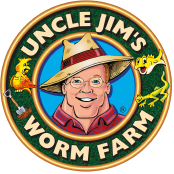

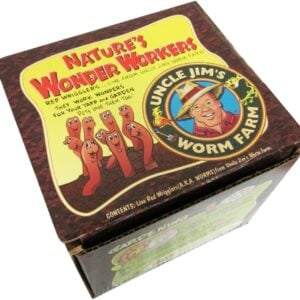
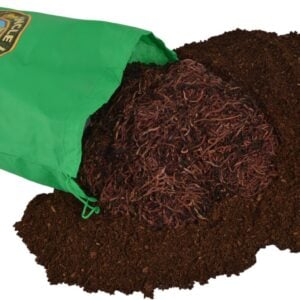
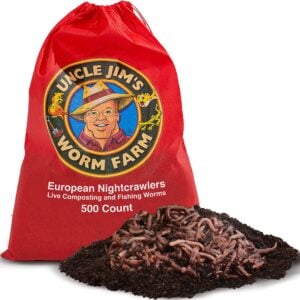
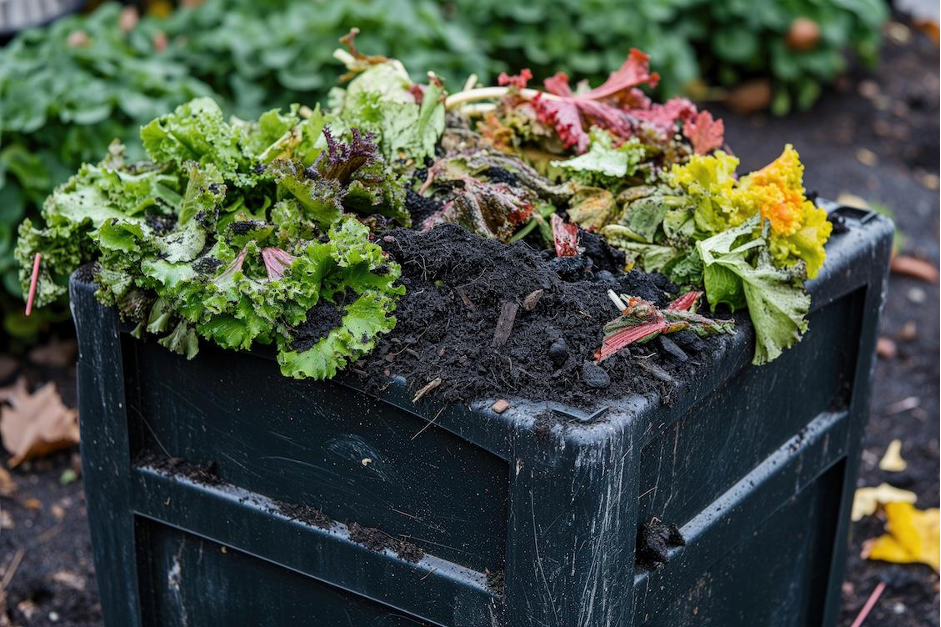
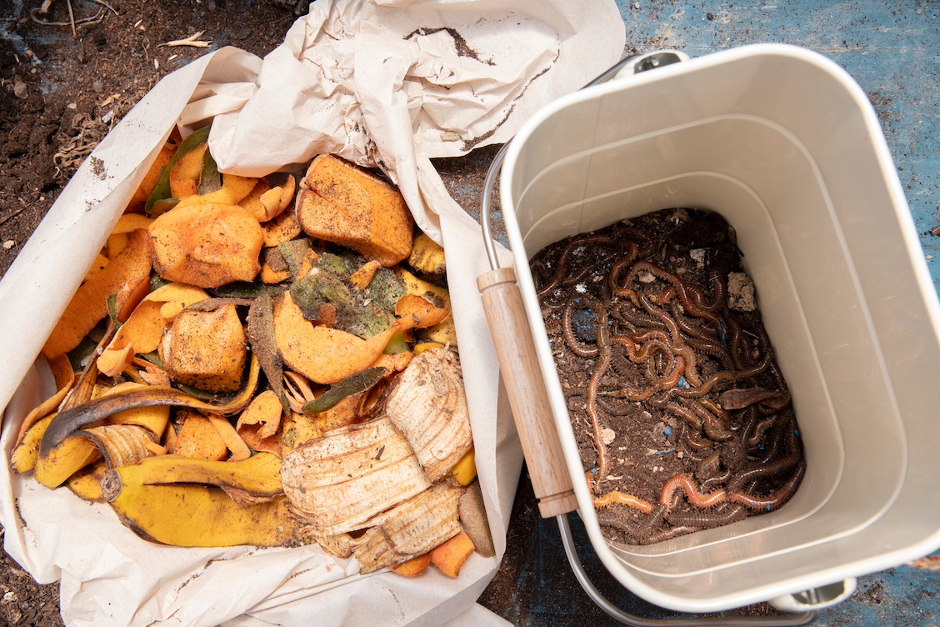

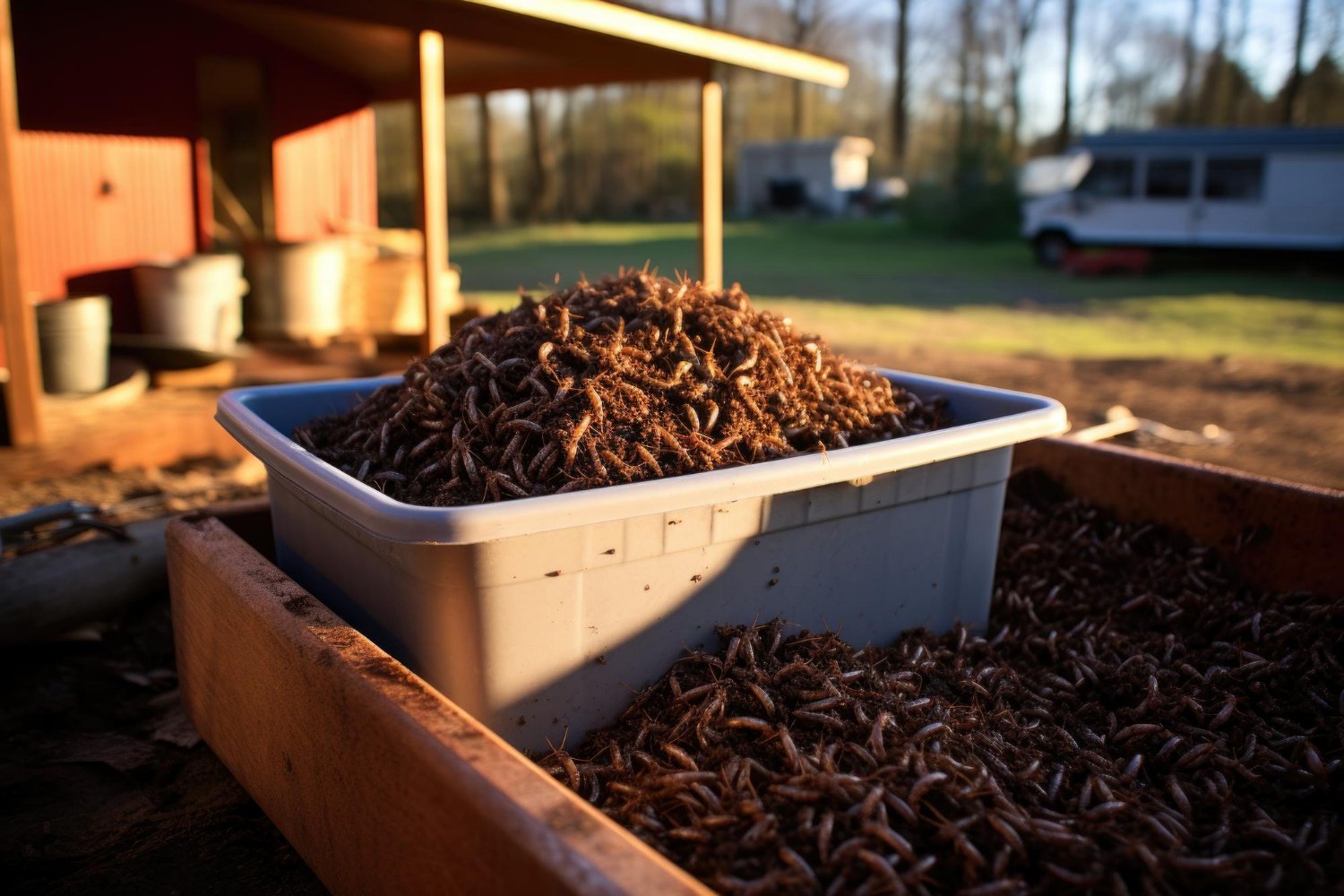
30 thoughts on “Do Not Feed This To Your Composting Worms”
Ooops. I’ve simply tossed anything plant organic into our bin, including citrus and onion, and also egg shells (not for the worms to eat, but because as a child I’d picked up, somewhere, that they were good for the soil). I suspect that the small amount of protein adhering to the shells is verboten, as well. Glad for the tips. Although our original red worm population from you was thriving, last year, we’ll now avoid the above items. Don’t seem to need more worms at present because of the population, last year. We’ll see . . . .
Thank you for that information. I’ve been grinding avocado pits and putting them in my bins. I will stop that immediately.
I feed my worms, cooked butter nut squash and spaghetti squash, I put a little maple syrup in hot water and pour it over the squash. They seem to love this food, Thanks Uncle Jim for a good product.
Thanks for the Tips Uncle Jim.
Thanks for sending healthy, live red worms.
How would you take care of your worms if you are going out of town for a few(4-5) days?
Can you put some extra food in the bin?
How often should you feed the worms on a regular basis?
My worm bin is doing well, but I still have these questions.
Thanks for your help.
MG
Uncle Jom, how about bread that has become moldy? Or forgotten vegetables left in the chrisper that have also become moldy? Will this type of feeding create a GOOD bacteria for the worms? Thank you, Tom.
we have a “garden tower” with the tube in the middle. Have dropped the worms down the tube. Is this the correct thing to do?
You feed them better than my wife feeds me
I use the green part surrounding a cauliflower, shredded carrots, salad starting to go brown, brown mushrooms I buy for them, all of this is chopped like coleslaw, then add used brown coffee filters an some used coffee grounds, shredded paper egg cartons to equal about 3 cups, they get this once a week, supplemented w dry oat meal and cornmeal. I got 16 lbs or more of fertilizer from them last yr alone. A happy worm is a giving worm!
Love the information! Looks like I need to add some things and limit some others. Barbra Currie, thanks for sharing your dinner delight
Egg shells are fine. Two of the main things that go into my bin are eggshells and coffee grounds.
From this very site:
https://unclejimswormfarm.com/using-eggshells-in-vermicomposting/
I thought the worms needed finely crushed egg shells ? Was I given bad info?
We have 6 chickens and have been adding the old straw and bedding from the coop to the compost bin once a week. Of course it has chicken poop in it. Is it ok for the worms in the compost bin?
I recently lost all my worms because I dumped a few jars of fruit canned with stevia in their bin. I didn’t want the fruit only the jars, it wasn’t spoiled, just canned using stevia. When some of the juice touched a worm, it reacted like it was being poisoned or scalded or something. I tried to clean it up but I realized what the problem was too late and all my worms died. Since I’ve put canned fruit in my worm bin in the past and my worms loved it, the only thing I can think of to explain it is stevia is a poison for them.
On your article ‘flyer’ you show pictures of tomatoes & pineapple, yet from what I read above, these should not be fed to the worms. Also, re egg shells: I wash and rinse my shells thoroughly, then sterilize them in a a 325 degree oven for about 15-20 minutes, crush them as finely as possible in a plastic bag with a rolling pin, and add a bit about once a month. Is this a problem? I, too, have read (it came with the info with my kit), that this was a good thing…
i raise OG micro greens in my room – it’s soooo magikal !
after harvesting, i place the used “mat” of soil and little tender roots and stem stubble in my bi , wist it well and the worms absolutely luv it and break it down. just another reason to jump on micros !
Is there a type of worm that works in a compostable toilet?
Great info! Thank you from northern Maine!
Should I stop adding egg shells into the worm soil? I also add dirt from the back yard with the food scrap and peat moss. It is not clay. Rather sandy. Any comments? Larry
I have found that they love pineapple skin. They make lots of babies in the green top part and go crazy all over the rind. So I do feed pineapple rind/waste (freeze it first to prevent fruit fly eggs, then thaw and feed).
I don’t know why people are worried about eggshells…he didn’t mentioned those in the article! But there are some of these ingredients in my bin, so good to know!
I am interested to know the replies to several of these questions but cannot open the Most?
Hi! I just started an indoor stackable bin vermicomposter 3 weeks ago. Having trouble troubleshooting since most posts I see are for outdoor or plastic bin set-ups, but I have a wood stackable bin set-up. I started with shredded paper and soil on the bottom, and have been feeding about every 4-5 days with blended veggie scraps, coffee grounds and filters, and a sprinkling of crushed egg shells and some plant clippings and the dried up outer skins of onion/garlic. The veggie scraps have been disappearing fast. But on my most recent check in, I dug around everywhere, and only saw 2-3 worms in the entire bin (one baby, two small sized) although I hope some are good at hiding and I just didn’t see them. And don’t see any cocoons. I’m not sure what went wrong! I’m suspecting it may not have been enough moisture – since the wood bin and coffee grounds seem to be drying. Do you think it’s the proportions of food mix? Or moisture? :/ I just had another thought. On the last feed, I threw in some very old tortilla and bread … the tortilla was store-bought and prob filled with preservatives. I don’t see the tortilla anymore, so I think the worms ate the old tortilla, but didn’t touch the fresh bread. Wondering why they’re disappearing – if it is lack of moisture, or preservatives, or…. PH?
My family does not cook that often at home but at my school they are giving out fruits and vegetables that I take home and eat them but I was thinking if I could use some of the vegetables for my red wigglers but I am not sure if I should because they are packaged fruits?
Are apples cores ok? And what about garlic?
I am wondering how I know when to feed my red wigglers. I started with about 250 wigglers a month or so ago. I blend their food and place about a pint of gruel in their bed, alternate corners with each feeding. It’s dark where they are, so, when I check, I can’t really tell if the food is still there, has been eaten, or if it has settled; making when to feed a guessing game What signs do the wigglers give, if they are hungry?
I just gave some yogurt whey diluted with water to my worms. I used a a sprinkling can. Did I do a lot of damage to my worms?
Hello Jean;
We do not recommend that you add dairy products to the bin as this will cause insects to be drawn to it and anaerobic conditions in the bin. Dairy, meats and oils/grease are things we recommend you not add. You can remove the bedding where that was poured if possible to get most of it out. if it is mixed in and there was not much of it, you do not notice any issues with the worms or the bin, just let it be. otherwise, you may have to change the bedding completely if you see any sign of foul odors or flies/insects.
Can I feed worm dietary supplement
Hello and thank you for your question. What kind of supplement are you looking to feed them? Anything Organic is usually fine, but we do not recommend anything that is processed.
Uncle Jim’s Worm Farm